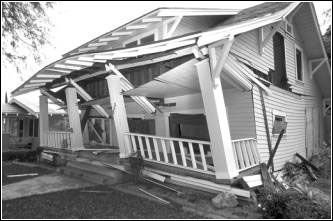Still Having Dreams at Night About Haiti
Haiti continues to occupy a tremendous amount of my energy, both consciously and subconsciously. In fact, I think that most everyone that was on our early team is still processing this disaster. I'm still having some dreams and wrestling with what I saw. I'm processing it on a couple of different levels. First of all I'm still very concerned about the long term health issues in Haiti. They have a long, long way to go. I am confident, however, that progress is being made. I'm encouraged by some of the plans that I've been told about and I don't feel that it is a hopeless situation. It is just going to be a long term struggle.
The other way that I'm processing the experience involves us. I can't help but ask myself, "What if it happened here?" That is good discussion for us to have. We need to be ready both from a physical, structural and procedural basis. We also need to be ready from a psychological basis. That is one thing that very few people talk about and I will address it in a new blog series entitled "How to Become Unshakable in Tough Times".
For now, let's take a look at what you can do from a physical, structural and procedural perspective. There is the check list of things that we can do to be ready from that standpoint.
Take Protective Measures
Before An Earthquake
The following are things you can do to protect yourself, your family, and your property in the event of an earthquake:
Repair defective electrical wiring, leaky gas lines, and inflexible utility connections. Get appropriate professional help. Do not work with gas or electrical lines yourself.
Bolt down and secure to the wall studs your water heater, refrigerator, furnace, and gas appliances. If recommended by your gas company, have an automatic gas shut-off valve installed that is triggered by strong vibrations.
Place large or heavy objects on lower shelves. Fasten shelves, mirrors, and large picture frames to walls. Brace high and top-heavy objects.
Store bottled foods, glass, china, and other breakables on low shelves or in cabinets that fasten shut.
Anchor overhead lighting fixtures.
Be sure the residence is firmly anchored to its foundation.
Install flexible pipe fittings to avoid gas or water leaks. Flexible fittings are more resistant to breakage.
Locate safe spots in each room under a sturdy table or against an inside wall. Reinforce this information by moving to these places during each drill.
Hold earthquake drills with your family members: Drop, cover, and hold on!
During An Earthquake
Minimize your movements during an earthquake to a few steps to a nearby safe place. Stay indoors until the shaking has stopped and you are sure exiting is safe.
| If you are | Then: |
|---|---|
| Indoors |
|
| Outdoors |
|
| In a moving vehicle |
|
| Island Trading |
|
After An Earthquake
Be prepared for aftershocks. These secondary shockwaves are usually less violent than the main quake but can be strong enough to do additional damage to weakened structures.
Open cabinets cautiously. Beware of objects that can fall off shelves.
Stay away from damaged areas unless your assistance has been specifically requested by police, fire, or relief organizations.
Be aware of possible tsunamis if you live in coastal areas. These are also known as seismic sea waves (mistakenly called “tidal waves”). When local authorities issue a tsunami warning, assume that a series of dangerous waves is on the way. Stay away from the beach.
Discussion
What questions and concerns do you have about how you can get your family, business or just yourself ready for a major disaster?
As I get ready to launch the new series, "How to Become Unshakable in Tough Times", what are some of your concerns that you would like me to address?


